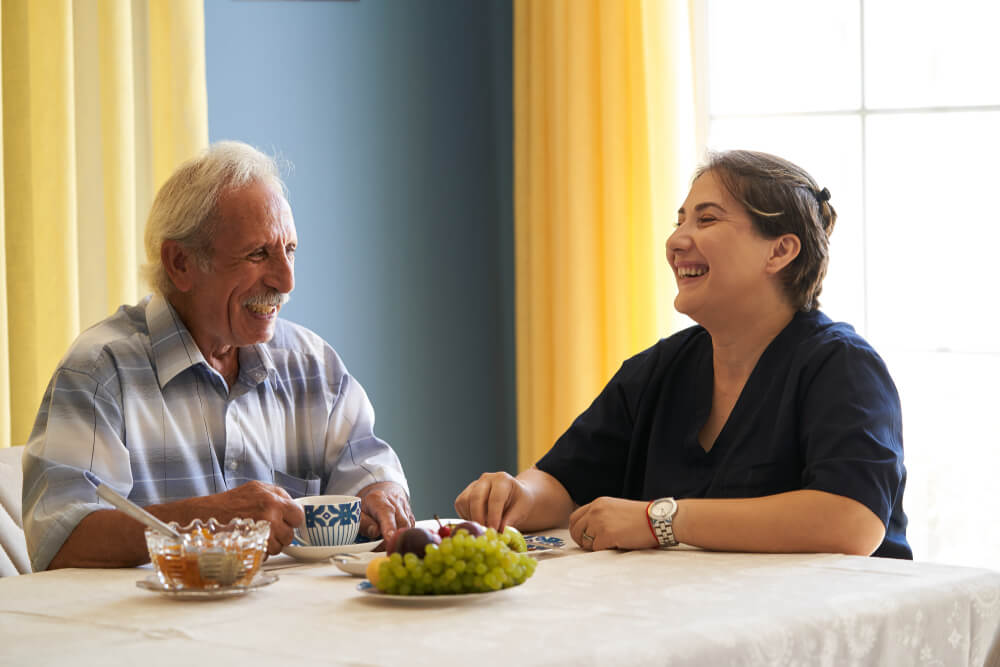Evaluating seniors’ changing needs helps guide the transition from assisted living to nursing homes.
As seniors age, assessing their evolving care needs and abilities is key to determining the most suitable living environment. While assisted living facilities provide daily aid with essential tasks, they have limited capacity to meet more intensive medical demands. Knowing when transitioning to comprehensive nursing home care becomes necessary can prevent major health declines.
When to transition from assisted living to nursing home care
Knowing when to transition from assisted living to nursing home care becomes increasingly critical as seniors’ mobility, medical conditions, or functional capacities decline. Savvy families can watch for five pivotal signs indicating a loved one’s needs have exceeded an assisted living model’s care capacity. Identifying when these changes reach critical turning points enables proactive conversations guiding wise next moves before crises strike.
1. Round-the-Clock Care Becomes Necessary
Perhaps the clearest prompt that a nursing facility now better suits an elder’s needs comes when round-the-clock care becomes necessary. While assisted living communities offer helpful assistance and oversight, most cannot match nursing homes’ capacity to actively monitor and manage intensive health matters 24/7. Telltale signs the clock has run out on the current arrangement include:
- Struggling to independently complete even simple daily self-care tasks
- Displaying signs of injury or distress that slip through the gaps between aide visits
- Requiring specialized medical equipment or restricted dietary modifications
In particular, seniors experiencing mobility declines frequently require diligent repositioning and pressure sore precautions only nursing staff consistently provide. Likewise, those displaying signs of acute pain or infection need urgent assessment and protocols existing facilities may not offer. While building close bonds with a care team makes any prospective move emotionally difficult, remember that compassionate professionals would prioritize health.
The key distinction for families lies in spotting when a loved one’s needs predictably spike beyond what assisted living can provide, necessitating nursing home capacity. Assisted living cannot rival the registered nurse supervision, stringent healthcare oversight, and quick response capacity activated in nursing homes around the vulnerable clock. Make the tough but wise choice before calamity strikes.
2. Specialized Treatment for Diagnoses Needed
Another pivotal tipping point comes as previously manageable health conditions suddenly spiral into complex territory with amplifying demands. Whether facing a first-time diagnosis or downhill turn in longstanding illness, disease progression changes care equations. Signs matters have advanced too far for assisted living support potentially include:
- Symptoms like tremors, rigidness, or unsteady gait intensifying with Parkinson’s or Huntington’s
- Cognition and communication faltering daily for Alzheimer’s or vascular dementia patients
- Diabetes proving increasingly resistant to regulation despite close monitoring
In particular, memory care specialists agree that the high caregiver ratios and security precautions specific nursing home dementia wings provide often serve patients best as cognition fails. Likewise, handling intricate equipment like oxygen, dialysis, or feeding tubes assisted living staff lack specialized training for may necessitate nursing expertise.
The key is acknowledging when a once stable status quo now shifts towards inevitable decline across multiple interrelated bodily and brain systems. Complex conditions by nature resist stabilization and demand ever-increasing vigilance and treatment. Transitioning before emergency leaves no options demonstrates wisdom and compassion for ailing loved ones.
3. End-of-Life Services Recommended
As debilitating diseases advance towards end stages, supportive measures rightly shift focus from uncertain futures to current comfort. Seeking hospice or palliative services signals a transition to care realigning around quality of life rather than prolonging it. Signs a move to engage such specialized support equals transferring to suitable nursing facilities include:
- Terminal prognosis limits expected survival to less than 6 months
- Pain, breathing issues, or other symptoms prove resistant to relief
- Patient expresses desire to cease difficult treatments for symptom management instead
Specifically, while some assisted living communities arrange hospice partnerships for residents electing end-of-life care onsite, not all can or will. The intensive around-the-clock nursing attention, equipment access, physician oversight, and medication administration hospice patients often eventually require may also exceed staffing capabilities.
Likewise, nursing homes possess ideal positioning to coordinate extensive palliative services for those battling severe but non-terminal illnesses which still necessitate comfort-focused care. When devastating diseases disrupt living but not yet greatly shorten typical longevity, nursing support shining light into darkening days.
Make the decision to transition both a logistical and deeply emotional one, honoring a patient’s journey while furthering hard discussions on advocating wishes. Take it step-by-step, but with care and conviction carrying legacies forward.
4. Hospital Trips Increase
Patterns clearly emerge when tracking a senior’s escalating healthcare hurdles. While an occasional hospitalization meeting acute needs makes sense, repeat visits signal unaddressed issues between stays. Risk factors like infections, bedsores, and medication errors actually increase with each transfer. If admissions accelerate, take notice. Signs matters spiral out of control include:
- Two or more hospitalizations in just a few months
- Inability to manage post-discharge treatment regimens alone
- Readmittance for complications like pneumonia or falls shortly after previous discharge
Specifically, the disciplined medical oversight built into nursing homes aims to reduce dire downturns culminating in ER trips. On-staff experts actively manage medications, treat emerging conditions early, and ensure therapy compliance preventing regression. While no guarantees exist against infections and injury, proven safeguards make their mark minimizing danger.
Likewise, nursing facilities ease transitions where hospital care ends and rehabilitation begins, closing hazardous gaps. They also allow seniors to convalesce fully before returning home. Remember, location changes meeting escalating needs don’t represent failure but responsible love in action. Make choices dispelling doubt and blame.
5. Fall Risks Start Escalating
As seniors lose step strength and balance control, the risk of dangerous falls escalates exponentially even with walkers and canes in use. While all aging adults gradually decline in mobility skills, particular red flags indicate assisted living environments may no longer provide adequate stability supports when risk soars too high. Subtle signs such as relying on grab bars in bathroom transfers or tiring more easily halfway through hall walks should prompt evaluations by physical and occupational therapists at minimum.
However, clear triggers like multiple recent falls causing injury, developing a fear of falling that curtails all activity, or displaying unsteady loss of balance while standing still confirm relocated rehab with 24/7 nursing assistance is needed immediately. Specifically, the baseline osteoporosis and muscle wasting placing seniors at such high risk often rapidly progresses after just one setback accident. Deconditioning sets in quickly when pain or anxiety about repeating a debilitating fall understandably limits engagement in any remaining mobility potential. And with nearly 100,000 older adults dying annually from fall-related complications, expedient prevention is paramount, not waiting for the next tumble carrying far graver consequences.
How to move from assisted living to a nursing home
With pivotal health indicators flashing warning signs a move now looms imminent, shift focus towards smoothing logistics ahead. Consult your loved one’s physician for initial confirmation more intensive nursing care has become medically necessary. They can review recent vitals, medications, and incidents sparking concern to provide documentation supporting relocation requests.
Additionally, nursing homes typically have paperwork packages detailing required health history, care directives, insurance information, consent forms, HIPAA releases, and staff guidance on possessions to furnish rooms comfortably. Compiling these well before attempted transfer allows families to tackle questions and await placement calmly. Also enlist current assisted living administrators’ transition advice since they’ve handled many secure discharges.
Finally, leverage senior living placement services to weigh suitable nursing facility options close at hand meeting unique care specifications. Consultants alleviate research burdens for overwhelmed loved ones exploring this emotional move. With spotlights illuminating pathways forward, families can focus on reassuring anxious elders needing continuity and comfort most. And by connecting those pieces patiently addressing intricate needs in thoughtful coordination, the bonds between generations caring fiercely for one another only strengthen further.
Contact us at 832-371-6600 for a free consultation to share the challenges you’re facing, and to learn how our personalized home care services can help you.
Home Matters Caregiving proudly serves the Houston Metro area providing care for seniors wherever they call home.











